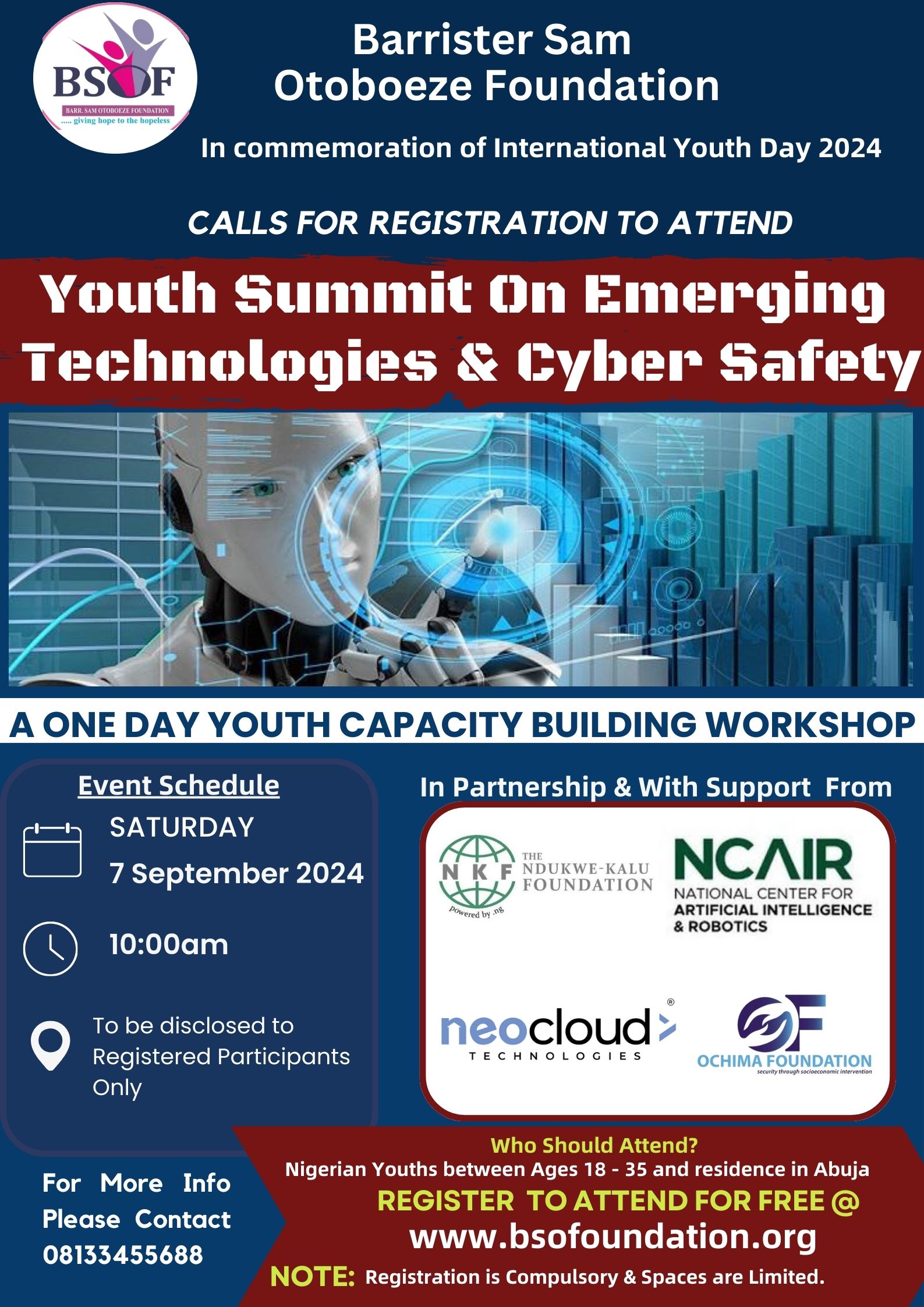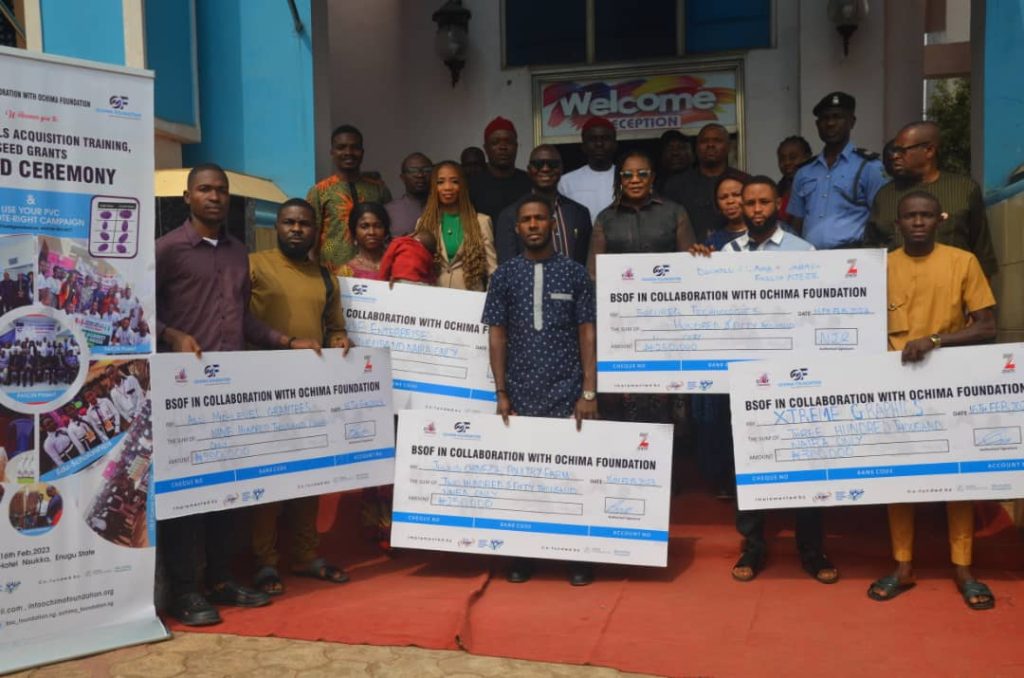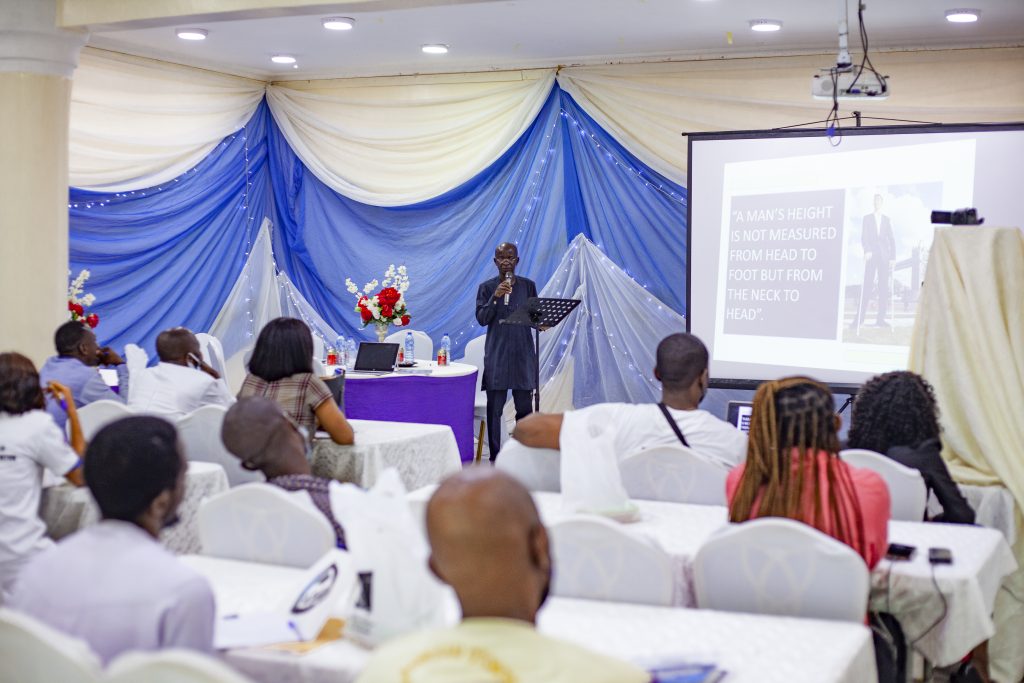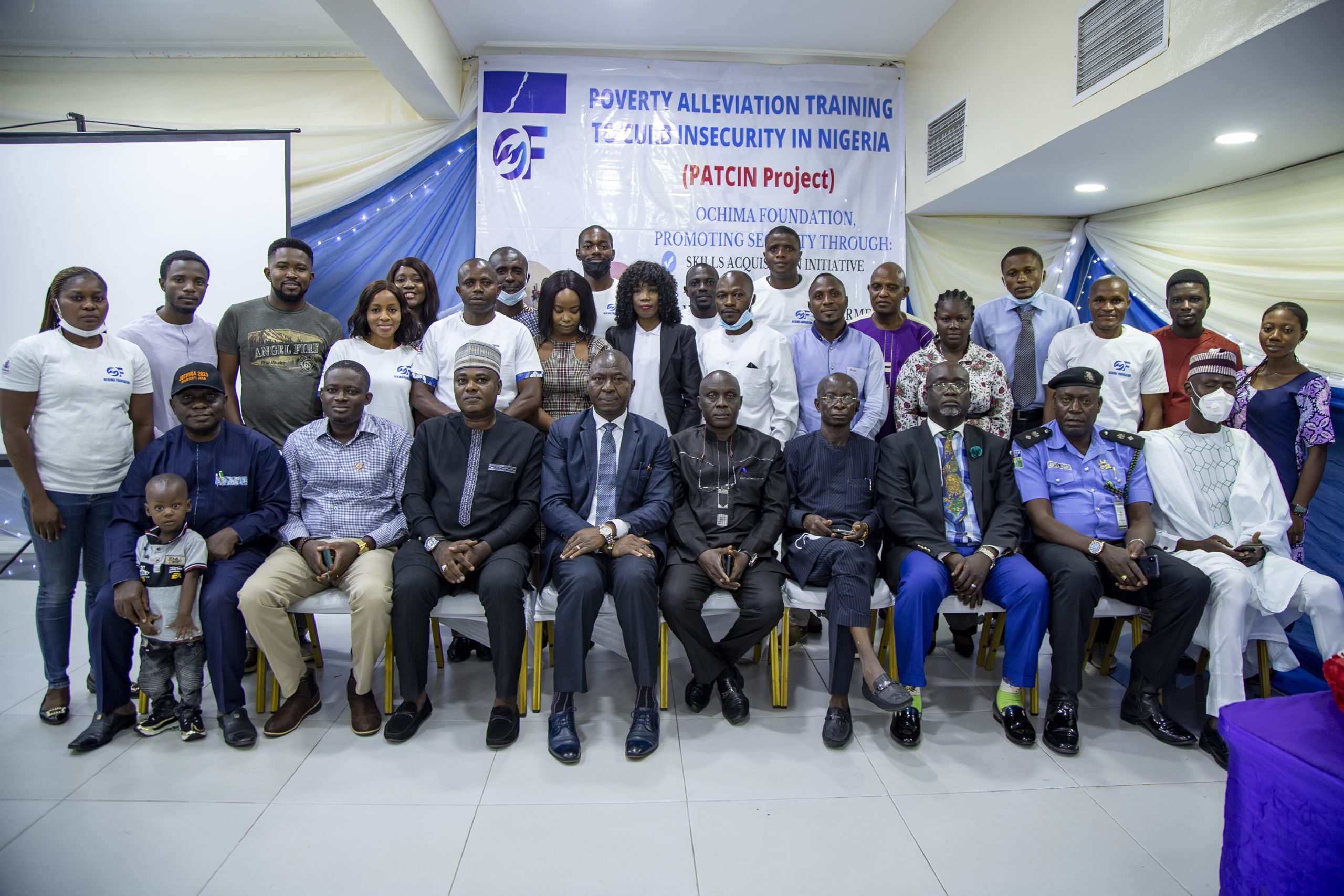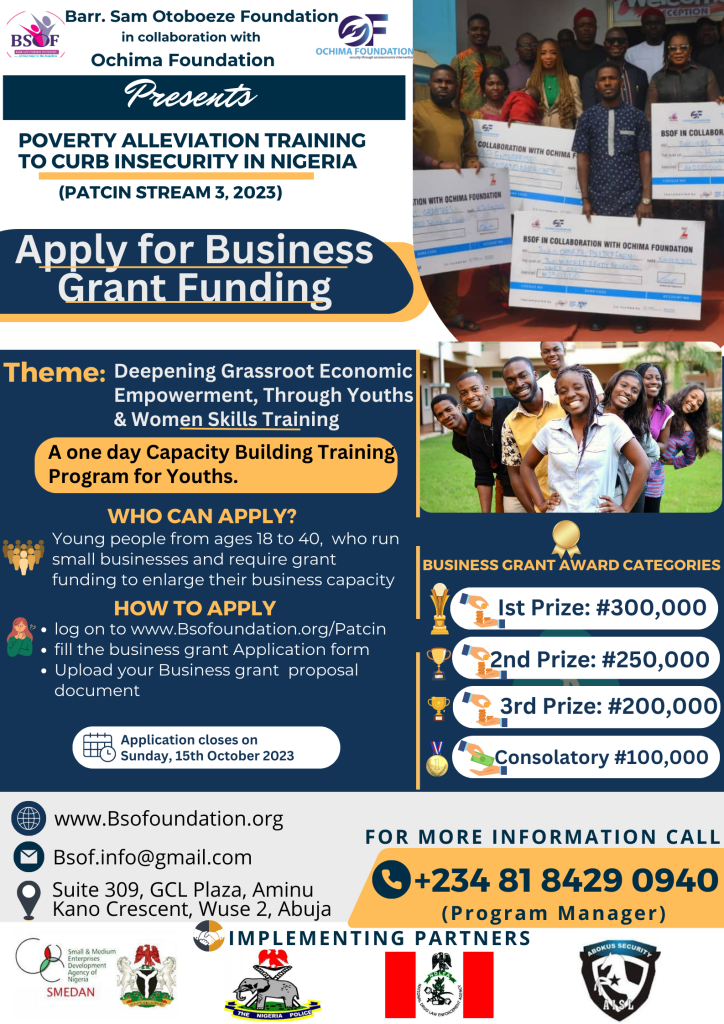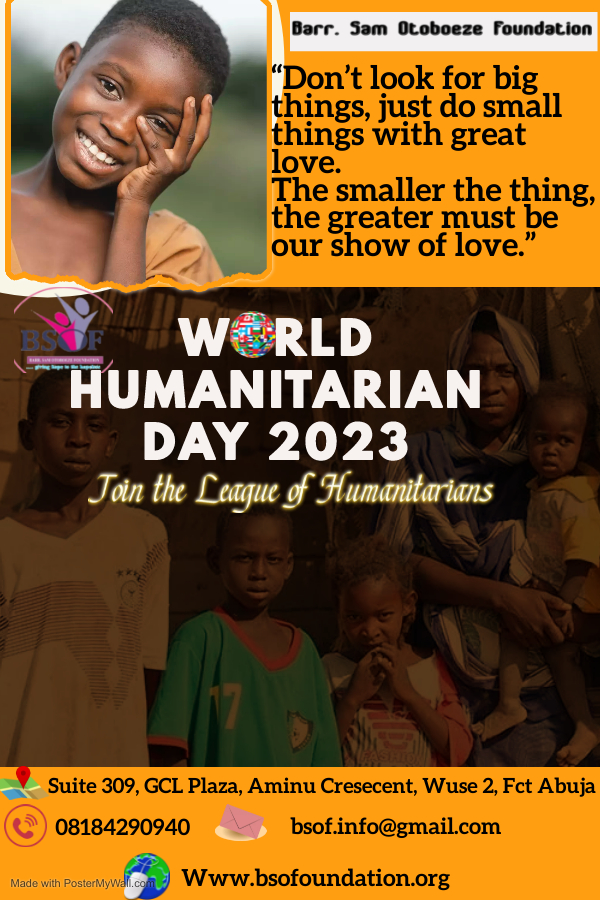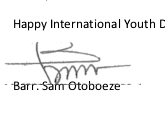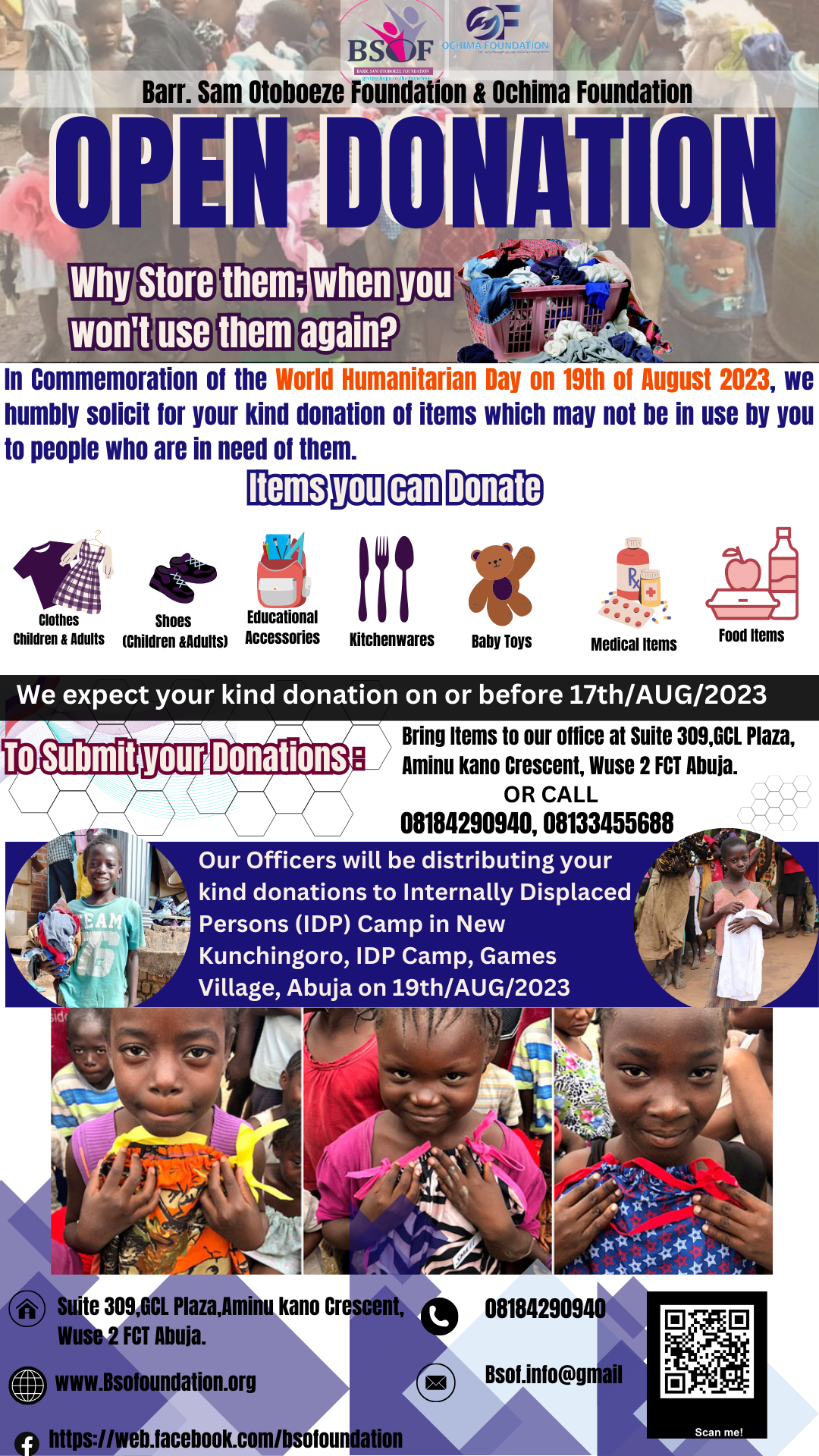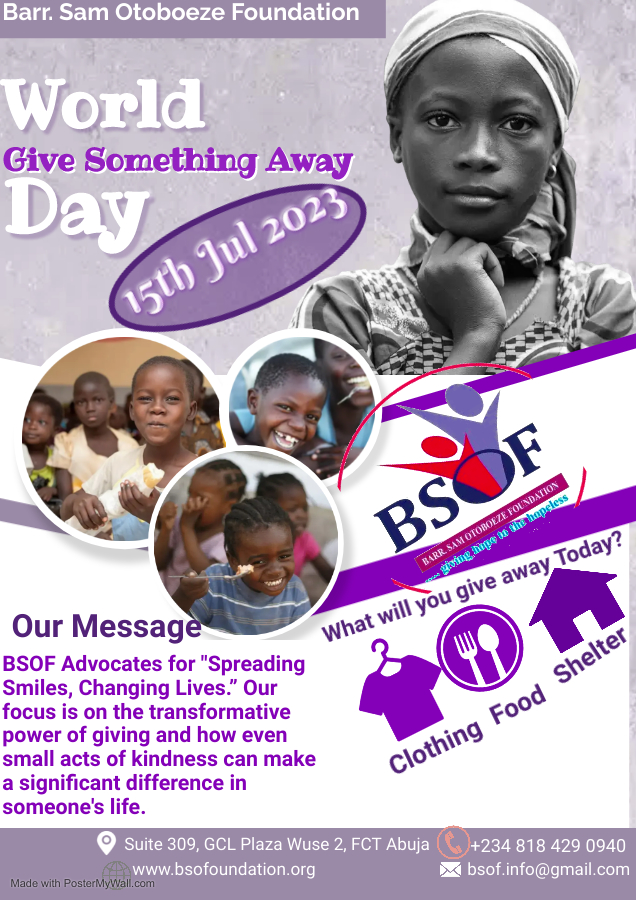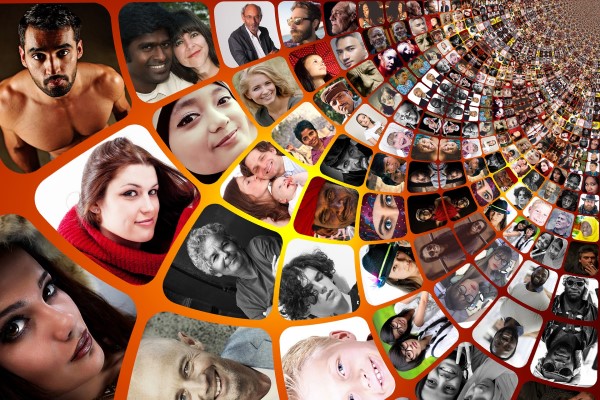Youth Summit Terms, Conditions and Data Policy Notes
Terms and Conditions for Youth Summit Registration
Effective Date: [Insert Date]
These Terms and Conditions govern your participation in the Youth Summit organized by Barrister Sam Otoboeze Foundation (hereinafter referred to as “the Organizer”). By registering for the Youth Summit, you agree to these Terms and Conditions in full. If you disagree with these Terms and Conditions, please do not register for the event.
1. Eligibility
1.1 Participation in the Youth Summit is limited to individuals aged 18 to 35 years.
1.2 Participants must be Nigerian citizens and residents of Abuja.
1.3 By registering, you confirm that you meet these eligibility criteria.
2. Event Details
2.1 The Youth Summit will take place on September 7th, 2024,
2.2 Participants must complete the online registration form with accurate and complete information. Filling out the form does not guarantee selection; only selected participants will be notified. Falsification of information may result in disqualification from the event.
3. Cancellation Policy
3.1 Participants may cancel their registration at any time, but participation is contingent upon selection by the Organizer.
3.2 The Organizer reserves the right to cancel or reschedule the event. In such cases, participants will be offered the option to transfer their registration to the new date or receive a full notice regarding the cancellation.
4. Code of Conduct
4.1 All participants agree to behave courteously and respectfully towards other attendees, speakers, and staff.
4.2 The Organizer reserves the right to remove any participant from the event for disruptive behavior or any conduct that is deemed inappropriate.
5. Data Protection and Privacy
5.1 By registering for the Youth Summit, participants consent to the collection and processing of their personal data in accordance with the Organizer’s data protection policy.
5.2 Personal information may be used for event-related communications and marketing purposes unless participants opt-out.
6. Intellectual Property
6.1 All materials, presentations, and content provided during the Youth Summit are the intellectual property of the Organizer or their respective owners. Participants may not reproduce or distribute any materials without prior written permission from the Organizer.
7. Limitations of Liability
7.1 The Organizer shall not be liable for any direct, indirect, incidental, or consequential damages arising from participation in the Youth Summit, including but not limited to loss of profits, data, or use.
7.2 Participants agree to indemnify and hold the Organizer harmless from any claims, damages, losses, or expenses incurred due to their participation in the event.
8. Governing Law
8.1 These Terms and Conditions shall be governed by and construed in accordance with the laws of Nigeria.
8.2 Any disputes arising from these terms shall be resolved in the courts of Abuja.
9. Amendments
9.1 The Organizer reserves the right to modify these Terms and Conditions at any time. Participants will be notified of any changes, and continued participation in the Youth Summit constitutes acceptance of the updated Terms.
1. Purpose of the Data Policy
The purpose of this data policy is to outline the principles governing the collection, use, storage, and sharing of personal data gathered during the registration process for the Youth Summit. We are committed to protecting the privacy and rights of our participants while ensuring a smooth registration experience.
2. Data Classification
The data collected will include:
- Personal Information: Name, age, email address, and contact number.
- Demographic Information: Educational background, interests, and affiliations.
- Registration Details: Workshop preferences, dietary restrictions, and emergency contact information.
All collected data will be categorized as “Sensitive” and handled with the utmost care to ensure privacy and security.
3. Data Collection
Data will be collected through an online registration form available on our official website. Participants will provide their information voluntarily. Consent will be obtained from participants at the point of data collection, ensuring they are informed about the purpose of data gathering.
4. Data Usage
The data collected will be used for:
- Confirming registrations and communicating event details.
- Planning and organizing the summit, including logistics and workshops.
- Post-event follow-up and feedback collection.
Data will not be used for marketing purposes without obtaining explicit consent from the participants.
5. Data Storage and Security
Participant data will be securely stored in a password-protected database with restricted access to authorized personnel only. Physical records, if any, will be stored in a locked filing cabinet. Data will be retained only as long as necessary for summit-related purposes and in compliance with applicable regulations.
6. Data Access and Control
Only designated staff members involved in the planning and execution of the Youth Summit will have access to personal data. Participants can request access to their data and request corrections through the provided contact information.
7. Data Transparency
Participants have the right to know how their data is used. A detailed description of data handling practices is available on the registration page. Participants can access, update, or request deletion of their personal data at any time by contacting us.
8. Data Breach Response
In the event of a data breach, we will initiate our response protocol, which includes assessing the breach, containing the incident, and notifying affected individuals as well as relevant authorities within 72 hours, following applicable regulations.
9. Compliance and Legal Considerations
We adhere to all relevant data protection laws and regulations, including the General Data Protection Regulation (GDPR) and the California Consumer Privacy Act (CCPA). Our commitment to compliance will govern all data handling practices.
10. Training and Awareness
All staff involved in data handling and management will receive training on data protection principles and the importance of maintaining the confidentiality of participant information.
11. Policy Review and Updates
This data policy will be reviewed annually or as needed to ensure compliance with changing regulations and best practices. Any updates will be communicated to participants via email and on our official website.
12. Contact Information
For any inquiries regarding this data policy or to exercise your rights, please contact:
Data Protection Officer
Email: bsof.info@gmail.com
Phone: 08133455688
.

